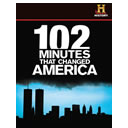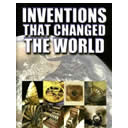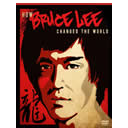The Camera that Changed the World
Prior to 1960, cameras capable of capturing the moving image were cumbersome and clunky, devoid of the ability to capture anything more than staged drama in a studio. As the 1950's wound down, filmmakers in the U.S. and France had a burning desire to capture real life in the moment and as it happened, and that desire sparked an innovation that revolutionized the audience experience. The Camera That Changed the World is the story behind that innovation.
Cameras were massive and delicate instruments that omnipotently sat atop tripods at the time, and sounds capture equipment was even more rigid. Enter Moi, un noir in 1958, a French documentary from Jean Rouch, which was shot in Abidjan, Ivory Coast on a small handheld camera considered to be "amateur." The physical freedom the camera allowed Rouch to infuse into the cinematography created a kind of life to the film that had never been seen before, and it sparked a desire in the minds of artists everywhere to emulate the results. It was a seed planted, one that would grow into everything documentary film production has become in the half century after it.
As mind-blowing as the film was, Rouch had a number of gripes about the wind-up handheld camera that made it possible. For one, you had to wind it up. Action was missed while you were doing this. Once wound, it could only record for about twenty seconds. It also made a great deal of noise while recording, so synced sound recording (at least a kind where you couldn't hear the camera) was not possible. Another camera was needed to appease filmmakers, as revolutionary an experience as Moi may have been.
Robert Drew worked as a writer and editor for Life Magazine at the time, and he convinced the money people at the company to give him a million dollars to create a camera that would meet all these desires. The camera they created was a four-pound prototype that allowed for unprecedented mobility in filmmaking. The first film shot on it was Primary, which followed then-senator John F. Kennedy in his presidential primary campaign efforts. In four short days of filming, they changed filmmaking forever.




Really it has been quite enough word that you are saying. A camera has changes the whole world. A camera can do anything.
Interesting how even back in the 60's the US corporate-fascist TV had absolutely no interest in truth; and it has only gotten worse.
We are so screwed.
Awesome Doc, does anyone know the last song playing to credits?
Sounds like the theme song to the movie "Rosemary's Baby"
Indeed, it's a great documentary. The only thing missing in the story is Arri IIC camera invented by Germans and used during the Second WW and many years later. So actually hand-hold camera and the idea of following protagonists was present at time of 60s but never grew before as much as in that time.
Makes you wonder how big a role the handheld camera played in the gestation of the counterculture. But then nowadays, when EVERYBODY has a handheld camera, society is more conformist than ever. Food for thought.
Thoroughly enlightening documentary. Thank you! I enjoyed this very much, and was unable to look away from beginning to end.
Loved the modest inventor cutting to Bob Dylan...A fine film.
Great doc! Very interesting to see the birth of something pretty much anyone can now do without much thinking with digital handheld devices.
A solid 9/10 doc.